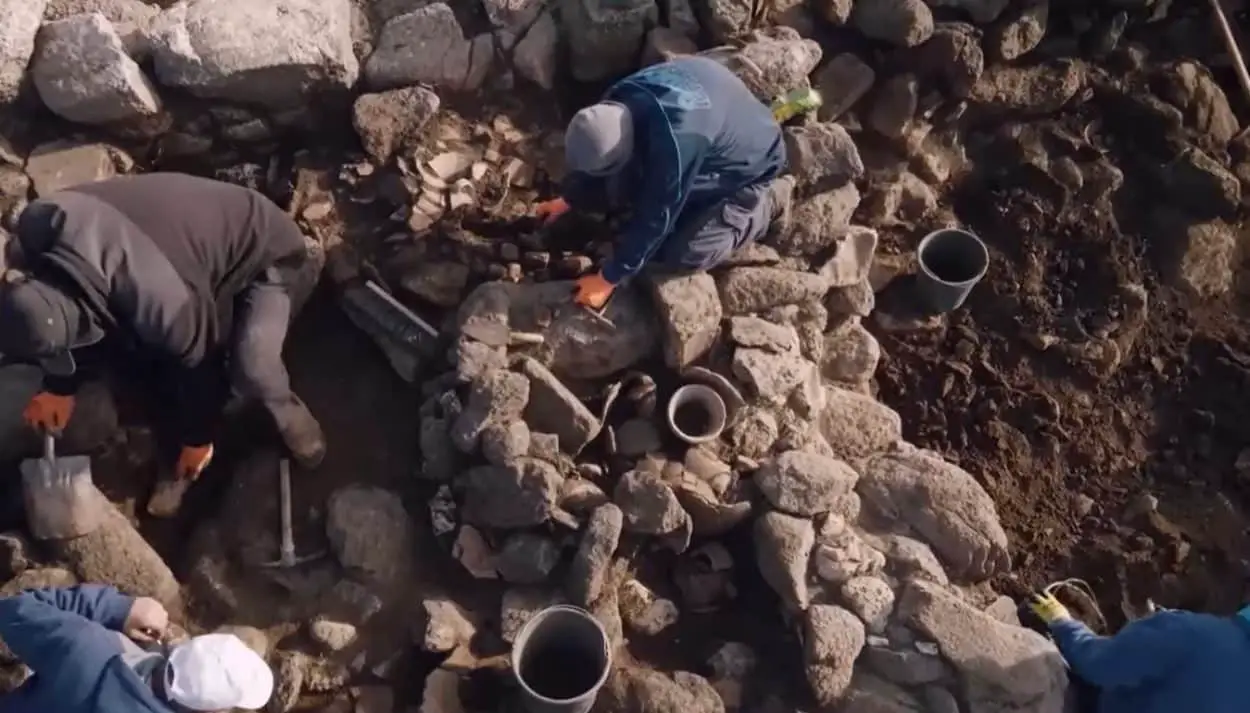An agricultural complex from the Hasmonean era has been discovered in Galilee, Israel.
The Hasmonean period was a ruling dynasty of Judea and surrounding regions during classical antiquity from 140 to 37 BC. The installation of Herod the Great (an Idumean) as king in 37 BC made Judea a Roman client state and marked the end of the Hasmonean dynasty.
Excavations were conducted by the Israel Antiques Authority (IAA) near the Arbel Stream in Eastern Galilee, revealing a 2100-year-old agricultural complex covering an area of around 30 square metres.
Within the structure, archaeologists discovered dozens of tools for ploughing and tending crops, in addition to weights used for weaving fabrics and several coins from the late 2nd century BC.
Dr. Amani Abu-Hamid from the IAA explained that most of the objects appear to have been simply abandoned, suggesting that the inhabitants had likely fled from potential conflict in the region caused by the expanding Hasmonean kingdom.
Abu Hamid said: “The agricultural complex is an important discovery because sites from the Hellenistic period and the Hasmonean people are very few in Galilee. The discovery closes an archaeological gap between periods, giving new insights into historical events during the 2nd century BC.
The team hopes that further studies of the site will provide information on the spread of the Hasmonean kingdom as it advanced towards the Galilee region.
Header Image Credit : IAA





